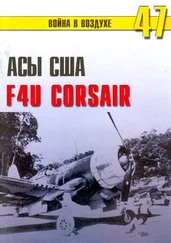Piecourt squinted ahead at the town, then blew a series of calls on his whistle. Obediently the oarsmen dipped their blades into the sea, the starboard side pulling ahead, while their companions backed water. The galley slowly swivelled. A sharp blast on the whistle and the oarsmen maintained the galley in position. Glancing astern, Hector saw that the officers of St Gerassimus had all gathered on the poop deck. They were too distant for him to recognise individuals and he wondered which was the captain, the celebrated Chevalier who was said to be such an implacable adversary of the Muslims. Even when Chabrillan had hosted his celebration of the Festival of Galleys, the galeriens had been forbidden to look directly at the Chevalier and his guests. To do so, the oarsmen had been warned, would be treated as insolence and punished with the lash.
His thoughts were interrupted by a deep coughing thud, a large cloud of dense black smoke, and the galley shuddering along her entire length. Beneath his feet Hector felt the bow of the galley suddenly dip into the sea as the massive recoil of the mortar thrust downward. A ripple spread out from her hull as if a giant rock had been dropped into the water.
The bomb could be seen high in the air, a black spot trailing smoke and flame as it raced upwards, hurtling towards the shore. Then it arched over and dropped back towards earth, only to splash harmlessly into the shallows, a hundred yards short of the town wall. There was no explosion.
‘Bring the vessel in closer, please,’ asked the gunner.
Again Piecourt’s whistle blew. The galeriens took a dozen strokes, then paused. The galley glided nearer to the thin line of surf.
Another bomb was loaded, and this time when it was fired, the projectile landed halfway up the beach and there was a muffled explosion.
‘Closer yet, please,’ asked the gunner. ‘Bring the galley nearer to the target area.’
‘There may be shallows here,’ Piecourt warned. ‘I’ll not risk the ship. If we come much closer, it may bring us in range of the town’s own cannon. They could have a few great guns, and be holding fire, so as not to waste powder. Just one shot could do us a lot of damage.’
‘I cannot increase the angle of the mortar,’ complained the artilleryman. ‘It’s already set at forty-five degrees for maximum range. I can only add to the propelling charge, and that might burst the barrel.’ He gave Dan a worried look. ‘Get your friend from the quarry to help you measure accurately. We don’t want any mistakes.’
All through the afternoon Dan, Hector and Bourdon worked on the rambade. They checked and primed the bombs, loaded them into the gun’s maw, cleaned out the mortar’s chamber after each shot and cleared the touch hole, helped the artilleryman to recharge the mortar and set the fuse, then to fire the weapon once the oarsmen had placed the galley in position. Bomb after bomb was sent towards the town, sometimes dropping short, occasionally veering off course and falling wide. One detonated in mid-air with a premature explosion that sent fragments of the metal casing pattering into the sea, an accident that drew a frightened intake of breath from the artilleryman. With practice, they learned just how much powder was needed to propel the bombs to reach their target, and just how much coating of powder was needed so that the missiles exploded on impact. The plunger fuses were soon abandoned for they usually failed to work. By the time the sun was setting, every bomb they fired was landing on target, and they could see the dust spurt up when they hit.
But there was no apparent effect on the town. The place remained silent and still. No one emerged from the gates, nor was anyone seen on the battlements. No one fled into the hills. No fires broke out. It was as if the place was abandoned and uninhabited. Only a thickening of the dust haze above the buildings hinted at the destruction that must have taken place. By the time the light faded nearly all the bombs in the ammunition store had been fired away, and there was a tone of disappointment in the gunner’s voice as he called a halt to his bombardment.
Piecourt ordered the oarsmen to row a safer distance offshore and there the St Gerassimus dropped anchor.
Black with powder smoke and half deaf, Hector and his two companions returned to their oar bench and were shackled in place. ‘We did more damage to the galley than the town, I think,’ said Hector quietly.
‘What do you mean?’ asked Dan.
‘The rambade shuddered badly every time the mortar fired. It was worse after we increased the charge in the mortar’s chamber. The deck planks started to lift. By evening the beams under them also were loose. When Bourdon and I went aft to fetch more powder from the magazine, the water in the bilge was rising faster than usual. I’m surprised that no one else noticed.’
‘Perhaps they did and they kept their mouths shut. The officers were all too far away, and the rest of the petty officers are too frightened of Piecourt to interfere. He seemed to enjoy bombarding the town. He’s someone who relishes other people’s discomfort even if it’s only at a distance. I doubt that the townsfolk enjoyed their day.’
‘I wouldn’t be surprised if the galley was being shaken to pieces,’ said Hector. ‘I’ve seen a galley built and know how fragile the joints are. Once the main fastenings give way, there’s little to stop the vessel falling apart.’
‘What would you say are our chances of surviving in that town,’ muttered Bourdon. He was shaking his head from side to side, still trying to clear his hearing, and staring towards the distant land.
‘I expect they would hang us from the walls after the damage we’ve been inflicting.’
‘Not if they knew we had been forced to our work.’
‘And how would you get there?’
‘I’d go for a swim right now if it wasn’t so far,’ said Bourdon with a wink and shook his sleeve. One of the gunner’s work tools dropped into his hand. It was the thin spike used for cleaning out the touch hole of the mortar. ‘Never seen a better picklock. I lifted it from his tool bag when he was packing up, and he’ll not miss it until the morning. I could have us loose in no time at all.’ He folded his fingers over the implement, and when he opened his hand again, the tool had disappeared as if by magic. ‘Told you I was a good pickpocket,’ he said, a confident grin on his branded face.
Piecourt’s whistle blew the signal for the galeriens to take their rest, but Hector found it difficult to go to sleep. He lay there, thinking whether it would be madness to take up Bourdon’s suggestion of an escape and – as always – whether he would ever be able to track down Elizabeth. He shifted uncomfortably on the wooden deck and looked up at the sky and noted that the stars had vanished. The heavens had clouded over. From time to time he heard the tread of Piecourt or one of the sous comites walking the coursier as they carried out their night patrol, and he heard the call of the sailor on watch on the rambade, reporting all was well. As the hours passed, Hector became aware of a gradual change in the motion of the anchored galley as she tugged at her cable. St Gerassimus was beginning to pitch and roll. The noise of the waves increased. Pressing his ear against the deck planking Hector was sure that the sound of the bilge water swirling back and forth was louder. He sensed a general discomfort spreading among the galeriens as they slept or dozed all around him. Little by little he became aware of men waking up, and he heard the sound of retching as those with weak stomachs began to succumb to seasickness. He sat up and listened. The voice of the wind was definitely louder. A large swell passed under the galley and made her lurch. He heard raised voices. They came from the foredeck, and almost immediately there was the sound of Piecourt’s whistle. It was the order to man the sweeps. He struggled to his feet and sat down on the bench, his ankle chain tugging painfully. Fumbling in the darkness, he joined his companions in freeing the handle of the great sweep from its lashings, and sat ready to take a stroke. It would not be easy. Now St Gerassimus was rolling heavily in the waves, and with each minute the motion of the galley was growing wilder. Piecourt’s whistle sounded again. Hector and the other oarsmen took a long steady stroke, then another, and tried to set a rhythm. There were shouts from the foredeck, and he heard the command for the rambade crew to hoist anchor. In reply there were yells and curses, and a surge of water passed across his naked feet. He detected a note of alarm, even panic.
Читать дальше








